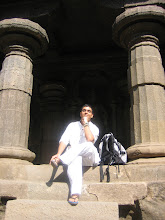***
Buddhist Terms Your Guru Never Taught You
By Gary L. Ray
I’ve compiled this list of modern Buddhist terms over the last several
years through a combination of listening to how American Buddhists
talk and coming up with my own terms describing how they behave. I
also credit Douglas Coupland for the idea of compiling the list.
ZEN SICKNESS: Also known as Madhyamika Sickness. The belief that
everything is empty, nothing matters, and that the world is illusory.
This sickness is usually cured by a Zen master with a big stick who
asks: "Does emptiness feel pain?"
ZAFU SNAFU: Occurs while travelling or on vacation when you forget to
bring your meditation cushion (Author’s most common travelling
problem).
HUNGRY GHOSTS: Used by Vietnamese Zen Master Thich Nhat Hanh to
describe individuals who inhabit Dharma centers but are unable to
absorb the teachings.
BUDDHIST BAMBIFICATION or BUDDHISM LITE: When Buddhist teachers
present the Dharma in bit size, easily digestible pieces, usually so
the hungry ghosts can easily consume them and non Buddhists can
appreciate the teachings. Lately, many new Buddhist books seem to be
bambified, such as those by Thich Nhat Hanh and the Dalai Lama.
JEWBU: A Buddhist of Jewish descent, who usually wishes to form a
synthesis or a reconciliation between their new found Buddhist
spirituality and the tradition in which they were also raised. See the
book: The Jew in the Lotus.
ROUND RABIN: The going back and forth, either mentally or physically,
between one’s Buddhist practice and Judaic roots.
BUFI: Similar to a Jewbu. Someone with interests in both Islamic
Sufism and Buddhism. Used by London’s Lama Chime Rinpoche. Credit goes
to Virginia Oppenheimer for mentioning this on the Internet.
DHARMA BRATS: The children brought to Dharma centers by their
practitioner parents. Some of the brats are now second or third
generation Western Buddhists. See the excellent article entitled
"Dharma Brats" in the November 1995 issue of the Shambhala Sun.
HINAWEENIE: A Mahayana practitioner who refers to Theravadin
Buddhists with the pejorative term Hinayana. Hinayana is a technical
term used in Mahayana Buddhism to describe someone, usually within the
tradition, who has a lesser motivation along the path. Someone who
practices only for the benefit of themselves would be considered to
have Hinayana motivation.
ETHNOSANGHA OVERSIGHT: The exclusion of ethnic Buddhist groups
(nonwhites in this case) when referring to Western Buddhism.
BOOK BUDDHISTS: People who call themselves Buddhists but who have only
experienced the Dharma through books.
OM MANI PAT MY HEAD or DALAI LEMMINGS: Used to refer to new Tibetan
Buddhists practitioners who "go native," adopting a Tibetan name and
running around telling everyone how holy their guru is and reciting Om
Mani Padme Hum at the drop of a mala.
THERAFIRMA BUDDHISTS: Intellectual Buddhists, usually
psychotherapists, who believe in Buddhism strictly as a psychological
process and reject any hints of extraordinary aspects of the
tradition. They seem drawn to the Theravada and Tibetan Buddhist
traditions.
ME-ISM: From Douglas Coupland’s book Generation X: "A search by an
individual, in the absence of training in religious tenets, to
formulate a personally tailored religion by himself. Most frequently a
mishmash of reincarnation, personal dialogue with a nebulously defined
god figure, naturalism, and karmic eye-for-eye attitudes."
DHARMA BIT: Used when translating Buddhist texts to describe
philosophy that underlies a particular term.
CIRCUMEMBOLISM: Walking meditation performed after meditation to
increase circulation and avoid nerve damage to the legs.
TELENIRVANA: A state attained by many of those who answer Dharma
center phones with soft, wispy voices that seem to indicate too many
hours of meditation.
SPIRITUAL MATERIALISM: Coined by Chogyam Trungpa Rinpoche in his book
Cutting Through Spiritual Materialism: "There are numerous sidetracks
which lead to a distorted, ego-centered version of spirituality; we
can deceive ourselves into thinking we are developing spiritually when
instead we are strengthening our egocentricity through spiritual
techniques. This fundamental distortion may be referred to as
spiritual materialism."
GURO-OMETER: The parameters one uses to quickly access the quality of
a Buddhist teacher when first encountered, such as how they walk, the
way they speak, or my own personal favorite, how late they show up for
an event: the later they show up, the more insight they have.
ANTI-BODHISATTVA COMPLEX: Students upset because they don’t feel their
teachers are giving them enough of what they need or deserve. It could
be an issue of time or a particular teaching.
MASTER BAITING: Used to describe those lone male individuals who go to
Dharma centers to challenge a teacher, either to try to get them angry
or to test their insight with silly questions or koans. Also occurs in
martial arts centers.
TRAVELING ZENDO: One of the many Zen centers that meet, for financial
reasons, in a variety of low-cost or free locations, including pre-
schools, the back of coffee houses, book stores, massage parlors, New
Age space-for-rent buildings, and converted garages. Some of America’s
best Zen teachers teach in traveling zendos. It’s no longer Zen
without Zen Masters, it’s now Zen Masters without Zendos.
NOT FULLY BAKED: A term used by Buddhist teachers to describe other
Buddhist teachers whom they feel have not reached the spiritual level
necessary to teach.
exciting tradition, with more colorful or varied forms of practice and
ritual. Examples include leaving the Zen tradition for Tibetan
traditions or leaving Soto Zen for Rinzai Zen.








5 comments:
Ehem - "master baiting"??
HAHAHA! I didn't even catch that! Ah, Fred back at the old jokes...
When you read stuff like "master baiting" and big sticks on the same page, things can get a bit disconcerting, y'know :D
Great and amusing list with some terms I didn't know. Another term that someone came up with is "Nightstand Buddhist," meaning someone whose Buddhism is essentially gleaned from reading bits from books kept on the bedside nightstand.
I'm glad this article found some life after over a decade.
Post a Comment